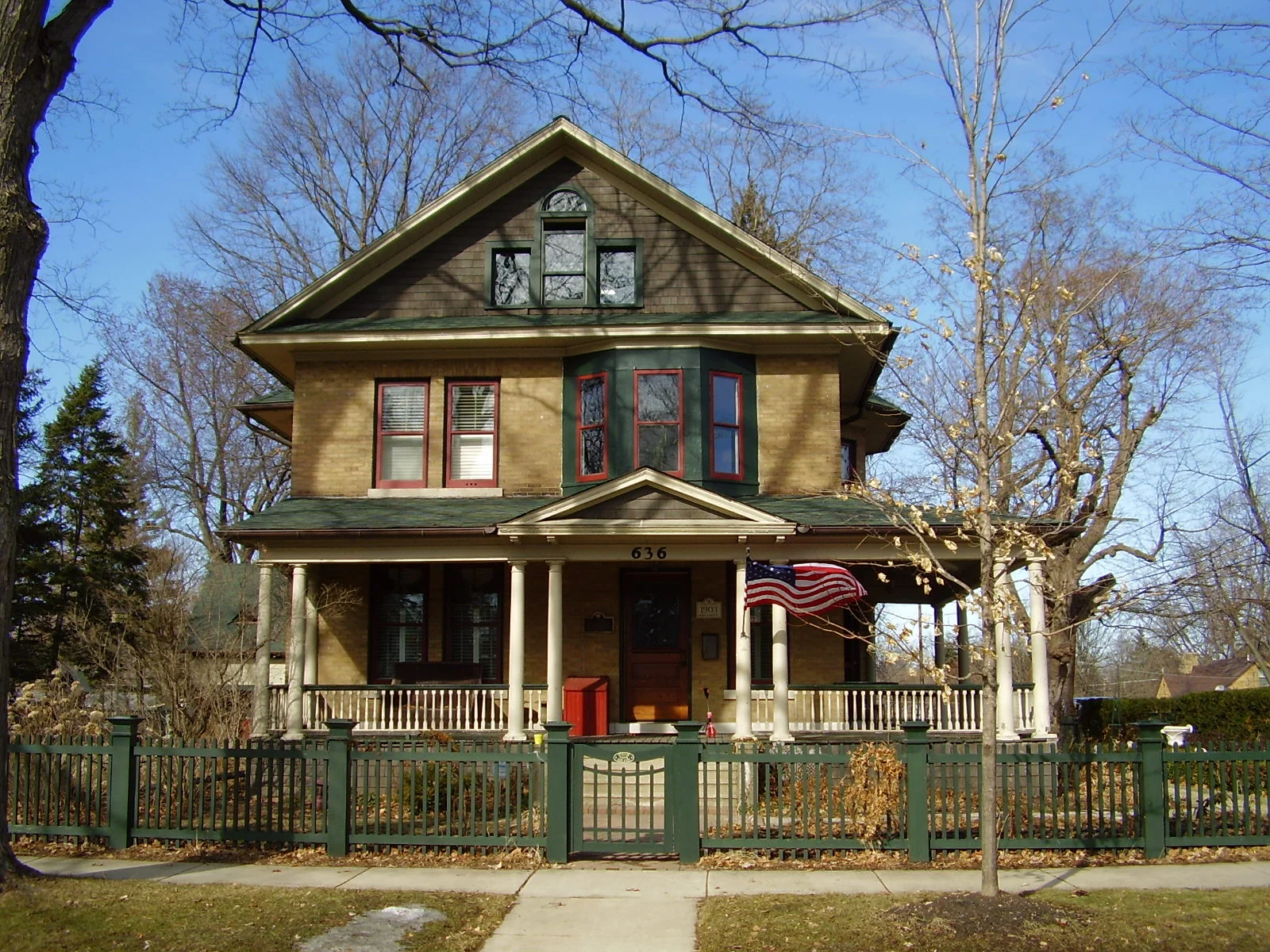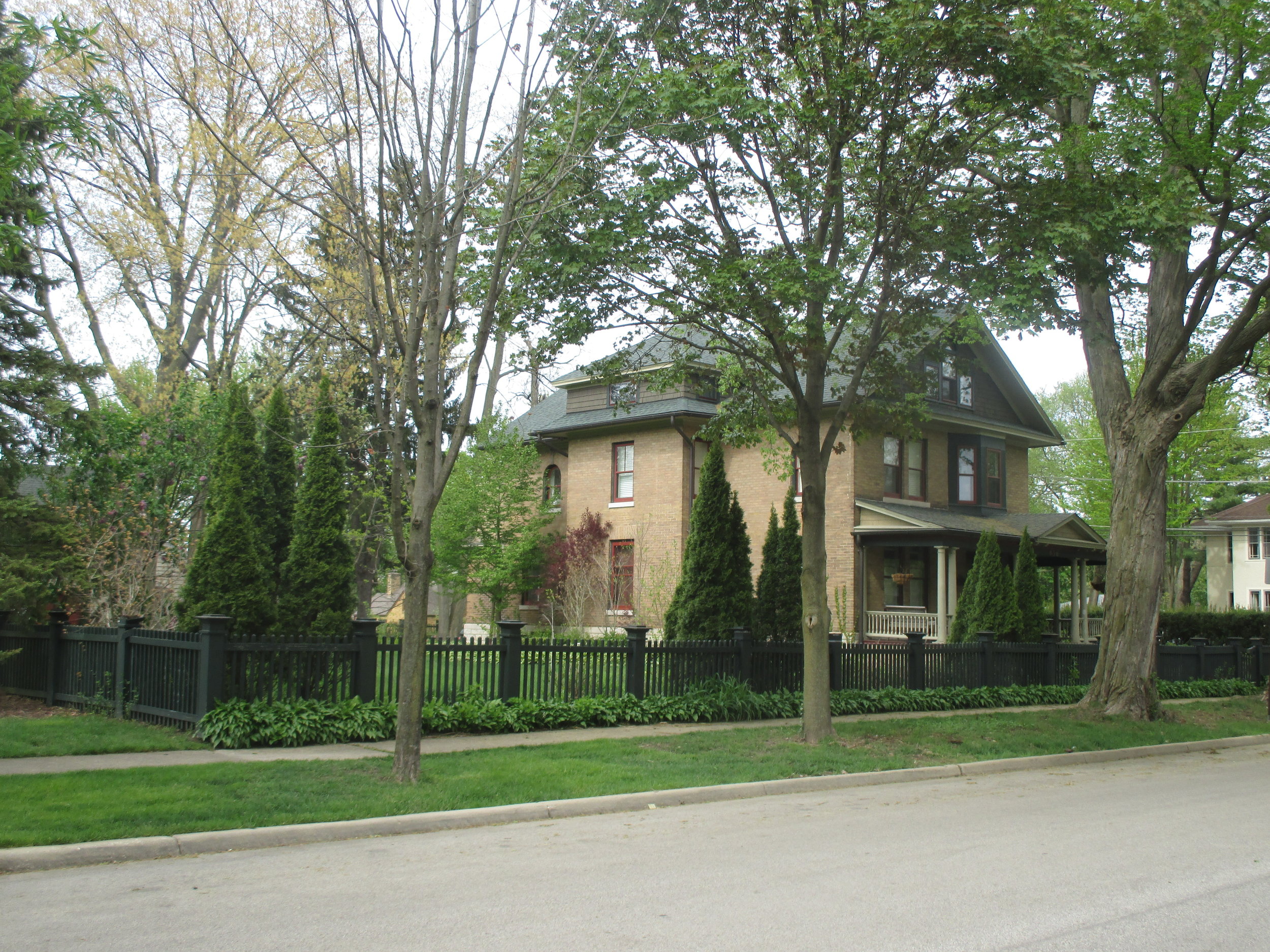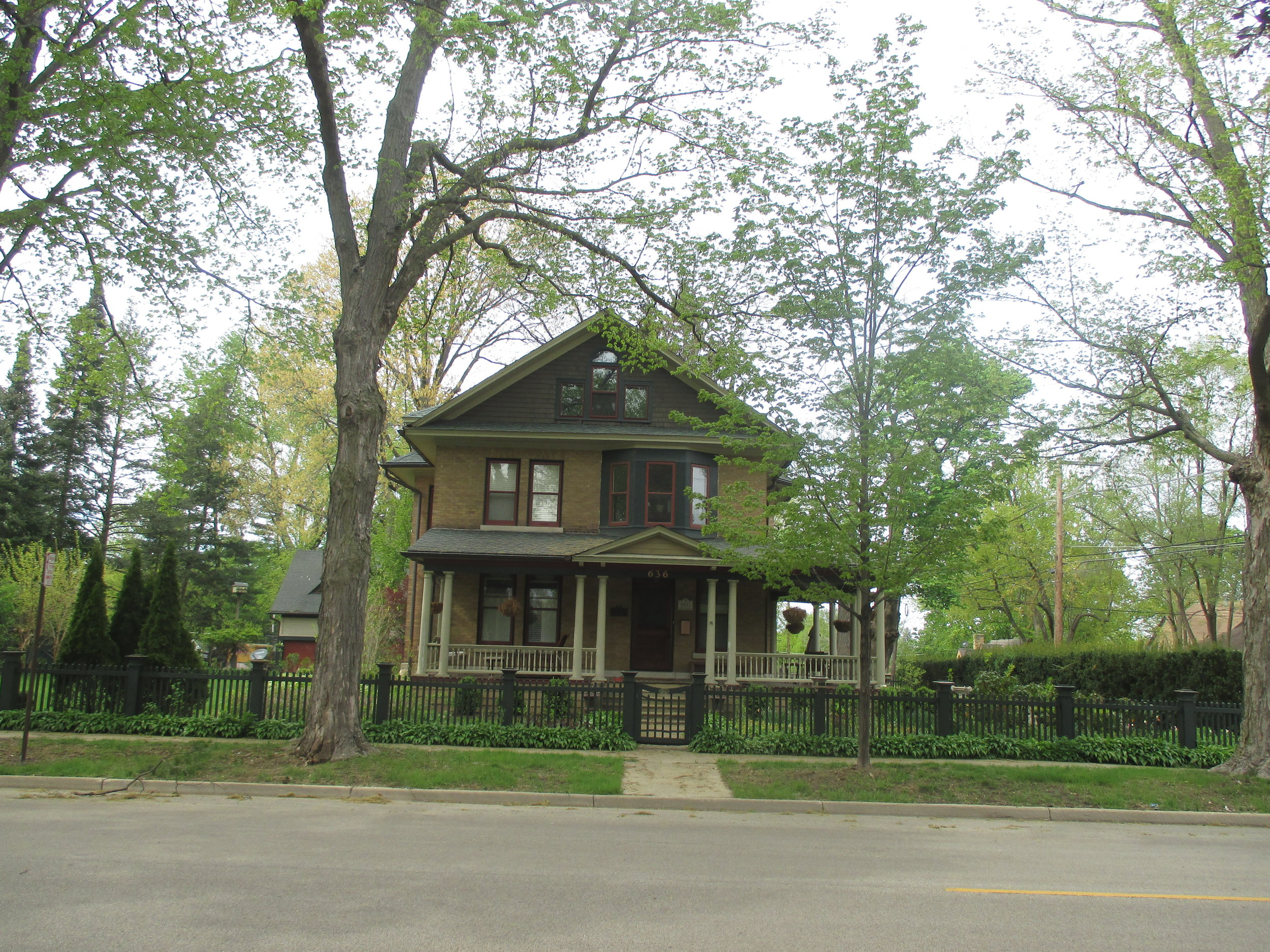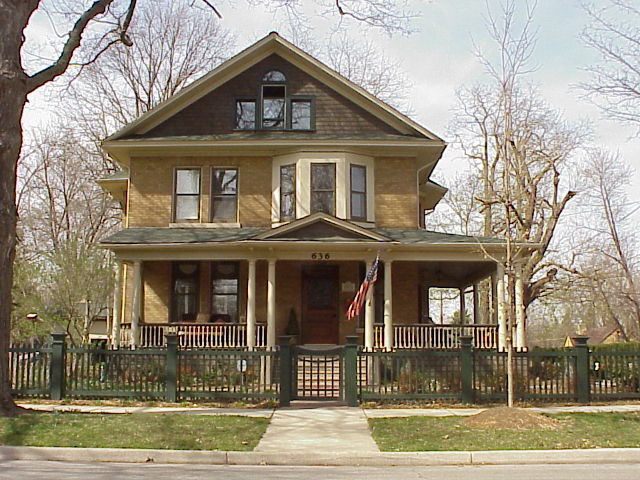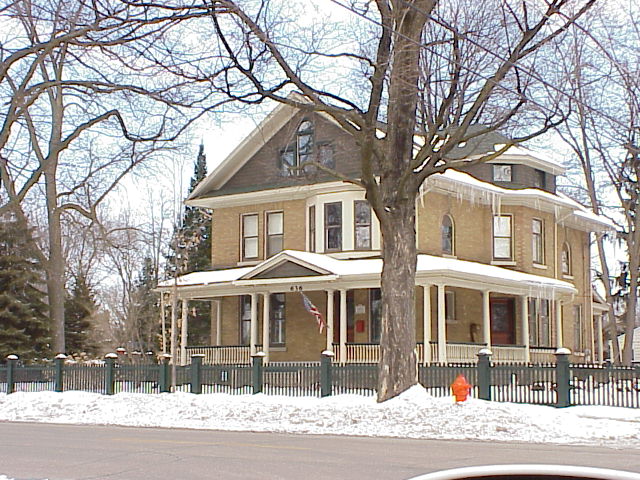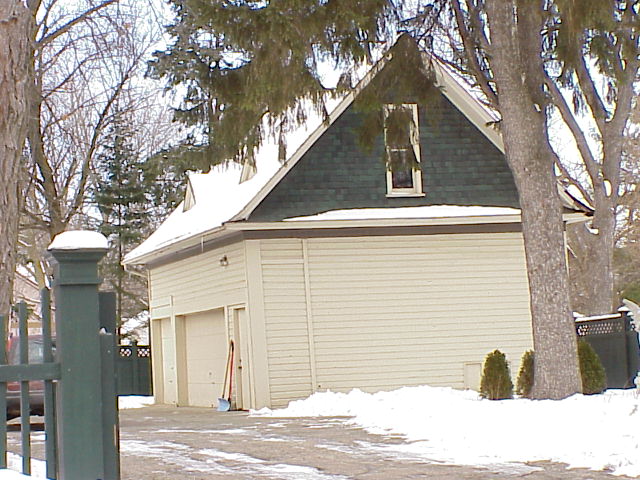636 PARK STREET
HISTORIC SIGNIFICANCE
636 Park Street was built in 1903 for Thomas P. Matters. Thomas was a native of England being born there in March of 1856 to John and Harriet Matters. John was a farmer by occupation. The Matters family emigrated to the United States and established a home in Bloomingdale. Thomas helped his father on their farm until his employment with Josiah Stevens who installed windmills and drilled wells. Thomas learned the trade in a quick two years and started his own business, "Matters Tubular Well Company," in 1888 establishing it in Elgin.
In 1882, he married Miss Emma Hennings, daughter of Henry J. and Frederica Hennings, who were natives of Hanover, Germany. Emma unfortunately passed away in 1899 at 40 years of age leaving four children; Ervin, Arthur, Dell and Grace. Nine years after her death, Thomas remarried to Hattie L. Hills, a widow of Edward Hills and the daughter of his old employer, Josiah Stevens. Thomas passed away on October 9, 1919 and is buried next to his first wife at Bluff City Cemetery.
ARCHITECTURAL SIGNIFICANCE
636 Park Street is am excellent example of the Free Classic sub-type of the Queen Anne style. Some significant characteristics of the Free Classic sub-type this is found at 636 Park Street include its wrap around front porch with round columns with Doric capitals and a classical balustrade, its flat arched brick lintels, pedimented gable and its Palladian window set within the front gable. It was noted that the carriage house at the rear was built prior to the home.
The home is considered a significant structure within the neighborhood and to the City of Elgin due to its connection with a prominent Elgin citizen and its significant architectural design. The home became a local landmark in 2003.
TIMELINE OF PREVIOUS OWNERS
Sources: 1987 Heritage Plaque Application; Audio: TextAloud
